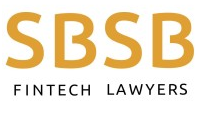

Since 2010, the Global Law Experts annual awards have been celebrating excellence, innovation and performance across the legal communities from around the world.
posted 2 years ago
The European Union started to embrace the reality of a situation with digital assets. Cryptocurrencies became too big to be ignored, which is why the MiCA regulation was created. This is a standard that regulates the norms and conditions of businesses that work with different types of digital coins. This initiative establishes clear rules for crypto exchange accreditation, custodians, and token issuers, filling gaps in existing financial regulations. MiCA license has become a new standard for legal businesses. By obtaining it, companies can show their clients and investors that it is safe to work with the platform as it is reliable enough and fully transparent.
By learning about current MiCA crypto regulation norms, you can see that cryptocurrencies are classified into several different types:
Each type of token has its licensing requirements for digital assets in terms of issuance, disclosure, and authorization of activities.
Issuers of MiCA crypto assets in the European Union must comply with certain rules:
Keep in mind that creating and issuing digital assets like stablecoins requires regulatory approval. According to the MiCA regulation, in the EEA, only electronic money institutions and credit institutions can undertake certain stablecoin activities. Specifically, only EMIs and banks can:
Meeting all these regulatory requirements is essential for making your business successful.
In the modern cryptocurrency market, it is not enough to create a digital asset, because it is also important to provide clients with some handy tools or services that would help them store and use all the digital coins they are holding. According to the MiCA regulation, several specific types of services crypto-asset service providers may offer:
This is a minimum you should know about the way modern crypto services are structured, as it is important for meeting all the necessary regulatory requirements.
To obtain a MiCA regulation crypto license, several regulatory requirements must be met:
The MiCA crypto licensing process typically involves 4 main phases:
This is what the basic procedure looks like, but keep in mind — each country will have its own procedure and deadlines.
The experienced team of SBSB Fintech Lawyers specializes in supporting the digital asset licensing procedure. The firm offers comprehensive customer support at every stage:
With a deep understanding of the specifics of the crypto market and digital currency industry oversight, the SBSB Fintech Lawyers team helps clients avoid legal obstacles.
The introduction of MiCA European will significantly change the rules of the game in the European crypto market, providing comprehensive blockchain industry oversight. Companies need to ensure regulatory compliance for crypto operations if they want to make sure all the operations are going to go smoothly. Engaging an experienced law firm such as SBSB Fintech Lawyers will provide professional support and facilitate all phases of licensing. Be ready for changes and act ahead of the curve.
Stay informed with the latest legal developments at Global Law Experts
Author


No results available
posted 3 days ago
posted 3 days ago
posted 4 days ago
posted 4 days ago
posted 4 days ago
No results available
Find the right Legal Expert for your business
Global Law Experts is dedicated to providing exceptional legal services to clients around the world. With a vast network of highly skilled and experienced lawyers, we are committed to delivering innovative and tailored solutions to meet the diverse needs of our clients in various jurisdictions.

Thinking of buying property in Brazil? Start with a full legal safety net.
✔️ Check title and ownership history
✔️ Verify no debts or disputes
✔️ Confirm zoning and permits.
#BrazilProperty #RealEstateInvesting #LegalDueDiligence #ForeignInvestment #PropertyLaw #GlobalRealEstate #InvestmentRisk #BrazilLaw

When your international business faces financial distress, quick action is key! 🔑 Negotiating with creditors, restructuring debt, and understanding insolvency laws can help regain stability. Global Law Experts is here to guide you through your options.
🌍Explore the details on our website.
🔗Link in bio
#GlobalLawExperts #CommercialLaw #BusinessLaw #LegalAdvice #BusinessGrowth #LegalTips #BusinessStrategy #LegalCompliance #Law #LegalKnowledge #LegalAwareness #Law101 #LegalEducation #IntellectualProperty

Thinking of buying property in Brazil? Don’t stop at the contract or key handover. Make sure the title is officially registered before calling it yours.
#BrazilRealEstate #PropertyLaw #GlobalInvestment #ForeignInvestors #LegalTips #DueDiligence #RealEstateRegistration #SecureInvestment

Getting a termination notice right now? Know your rights. Valid reason, fair process, proper notice they matter. Don’t let a bad dismissal walk away without accountability.
#EmploymentLaw #WorkerRights #Termination #LaborLaw #FairDismissal #WorkplaceJustice #LegalAwareness #GlobalWorkforce

Running a business is hard enough — lawsuits shouldn’t make it harder. 🚫 Protect your business with the right legal strategies and expert tools from Global Law Experts. Let’s secure your future together! 💼
🌍Explore the details on our website.
➡️www.globallawexperts.com
#GlobalLawExperts #CommercialLaw #BusinessLaw #LegalAdvice #BusinessGrowth #LegalTips #BusinessStrategy #LegalCompliance #Law #LegalKnowledge #LegalAwareness #Law101 #LegalEducation #IntellectualProperty #Infringed #Ecommerce #LegalBranding
Global Law Experts is dedicated to providing exceptional legal services to clients around the world. With a vast network of highly skilled and experienced lawyers, we are committed to delivering innovative and tailored solutions to meet the diverse needs of our clients in various jurisdictions.

Thinking of buying property in Brazil? Start with a full legal safety net.
✔️ Check title and ownership history
✔️ Verify no debts or disputes
✔️ Confirm zoning and permits.
#BrazilProperty #RealEstateInvesting #LegalDueDiligence #ForeignInvestment #PropertyLaw #GlobalRealEstate #InvestmentRisk #BrazilLaw

When your international business faces financial distress, quick action is key! 🔑 Negotiating with creditors, restructuring debt, and understanding insolvency laws can help regain stability. Global Law Experts is here to guide you through your options.
🌍Explore the details on our website.
🔗Link in bio
#GlobalLawExperts #CommercialLaw #BusinessLaw #LegalAdvice #BusinessGrowth #LegalTips #BusinessStrategy #LegalCompliance #Law #LegalKnowledge #LegalAwareness #Law101 #LegalEducation #IntellectualProperty

Thinking of buying property in Brazil? Don’t stop at the contract or key handover. Make sure the title is officially registered before calling it yours.
#BrazilRealEstate #PropertyLaw #GlobalInvestment #ForeignInvestors #LegalTips #DueDiligence #RealEstateRegistration #SecureInvestment

Getting a termination notice right now? Know your rights. Valid reason, fair process, proper notice they matter. Don’t let a bad dismissal walk away without accountability.
#EmploymentLaw #WorkerRights #Termination #LaborLaw #FairDismissal #WorkplaceJustice #LegalAwareness #GlobalWorkforce

Running a business is hard enough — lawsuits shouldn’t make it harder. 🚫 Protect your business with the right legal strategies and expert tools from Global Law Experts. Let’s secure your future together! 💼
🌍Explore the details on our website.
➡️www.globallawexperts.com
#GlobalLawExperts #CommercialLaw #BusinessLaw #LegalAdvice #BusinessGrowth #LegalTips #BusinessStrategy #LegalCompliance #Law #LegalKnowledge #LegalAwareness #Law101 #LegalEducation #IntellectualProperty #Infringed #Ecommerce #LegalBranding
Send welcome message